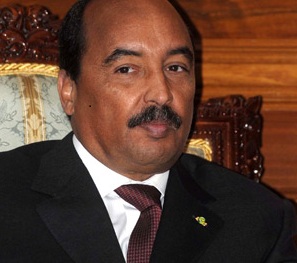As the war in Ukraine entered its fourth month, manifestations began to loom on the horizon that define the features of who is the winner so far. Is it Russian President Vladimir Putin, who led his country to an uncalculated war in Ukraine — as some claimed — and entrapped Russia in unlimited economic and political sanctions? Or the West, which believes that it has finally managed to isolate Russia, which is on the verge of becoming one of the world’s most powerful economies?
But by reading the results of the accelerating events over the last ten days, several facts can be gleaned that have begun to manifest on the international scene.
The first of these facts is the resounding fall of British Prime Minister Boris Johnson, who was forced to abandon his position as leader of the Conservative Party while temporarily remaining in his position as PM until the party holds internal elections.
This downfall was not expected so quickly, especially since Johnson had previously survived more than once a vote of non-confidence in the House of Commons.
Johnson withstood a large number of criticisms and scandals that engulfed his tenure and was able to find a way out of many predicaments by relying on internal support that he enjoyed, especially after the Conservatives won the largest number of seats in Parliament after coming to power, which he considered an absolute mandate to rule.
Analysts say Brexit was based on numerous lies, exaggerations, and misinformation that convinced just over half of voters in the 2016 referendum. It was promoted as a path to prosperity, self-determination, and independent trade deals that are not subject to the oversight or approval of European partners.
One of the most important promises was to reach a trade agreement with the US, which is yet to happen. After nearly three years of difficult negotiations over the regulation of exit mechanisms, the promise to sign a trade agreement with the US seemed like a bluff on the part of former US President Donald Trump.
Although some attribute this downfall to some moral scandals that affected some ministers in his government, as well as his violation of the rules of closure during the coronavirus pandemic, many analysts believe that Brexit’s propaganda — in addition to the financial and economic crisis that Britain was exposed to in the wake of the pandemic and the war in Ukraine — was the main reason for Johnson’s humiliating exit.
This is especially so since Johnson was the most enthusiastic about imposing and expanding sanctions on Russia, knowing full well that his country would be one of the most affected by this step. Thus, Johnson became the first European leader to pay the price for his blind support to the US.
Another fact was revealed last Friday by the G20 Summit meetings in Bali, Indonesia, where the group failed to impose sanctions on Russia during the summit, and even the G7’s plan to boycott Russia in the G20 failed. No one supported the Western regimes’ call for boycott.
There are disagreements among the G20 member states over how to handle the war in Ukraine, with half of the countries supporting imposing US and European sanctions on Russia.
However, Washington’s hopes of forming a united western front against Moscow were damaged after Johnson resigned as leader of the Conservative Party. This was not the only dispute that began to engulf the alliance against Moscow.
The food crisis and the shortage of wheat and its repercussions on many countries of the world contributed to weakening the Western position. Even Germany, whose position fluctuated at the beginning of the crisis, requested two days ago from Canada to expedite the supply of a turbine dedicated to pumping gas to Russian company Gazprom due to the exposure of the German Gas Company to heavy losses as a result of the delay in the supply process.
Meanwhile, the alliance that Putin established with China and India is still so far impenetrable.
Indeed, the talks held by US Secretary of State Antony Blinken with his Chinese counterpart Wang Yi last week did not lead to the reopening of dialogue between Washington and Beijing.
The talks were the first in months after relations were strained over several issues, including Taiwan. While the meeting between Russian Minister of Foreign Affairs Sergei Lavrov and his Chinese counterpart was more cordial, with Lavrov emphasising many of the constants linking Moscow and Beijing, especially in the recent period…
So, the global political scene is confirming that other leaders, especially European ones, are subject to the same fate as Johnson.
*Hatem Sadek is a Professor at Helwan University



